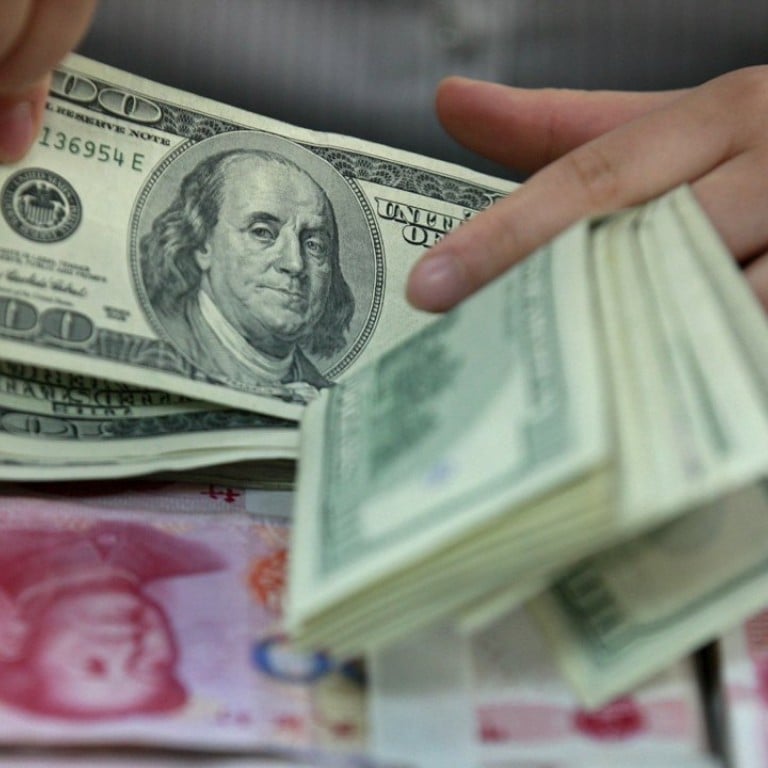
China must devalue the renminbi or lose its hard-won reputation for economic management
Milind Rao says there is no way Beijing can keep the currency fixed to the US dollar, and at the same time maintain its own monetary policy, unless it enacts capital controls
Three independent announcements have shaken the world’s capital markets of late: first, the Bank of Japan’s surprise announcement of negative interest rates; second, the US Federal Reserve’s clear signal that it plans to tighten monetary policy this year; and, third, China’s announcement of a record low GDP growth rate.
The obvious consequence is that China must devalue the renminbi immediately. Failure to do so will not only hurt Beijing’s hard-won reputation for economic management (especially with the public) but will simply delay the inevitable final reckoning and exacerbate current problems.
READ MORE: Ask not whether yuan will fall, but how low it will go
The Fed has been signalling since 2013 that it would be tightening monetary policy and finally raised interest rates last December. Markets have been anticipating the rise for over 18 months and capital has flowed from all over the world to the US, resulting in the dollar getting stronger versus every other currency.
At the same time, the European Central Bank and the Bank of Japan have been engaged in a race to the bottom: both have been increasing money supply and lowering interest rates in an unprecedented manner, culminating in the recent move to negative rates. This has, of course, exacerbated the flow of capital into the US and the dollar’s strengthening.

In a famous paper for which he won the Nobel Prize, Robert Mundell showed that a country can have only two of the following: Free capital flows; fixed exchange rates; and independent monetary policy.
In other words, if a country has no capital controls and a fixed exchange rate, then it loses its monetary policy. Indeed, not only does it lose the ability to set interest rates, its interest rate is automatically set by the country to which its exchange rate is fixed.
Consider Hong Kong. It has free capital flows and its exchange rate is fixed to the US dollar. Thus, Hong Kong loses its monetary policy to the US. That is, when the Fed raises interest rates, Hong Kong must and does automatically raise its interest rates.
One way to increase GDP is to have a loose monetary policy
As the renminbi is also fixed to the dollar, the People’s Bank of China should raise rates as well. Therein lies the problem. Last year, China’s GDP growth – 6.9 per cent – fell below 8 per cent for the first time in 25 years. The government is keen to see that rate rise. One way to increase GDP is to have a loose monetary policy. This is precisely what China has been doing for the past six months: it has increased the monetary base and lowered the interest rate.

China has a choice to make: if its currency continues to be fixed to the dollar, it must follow the Fed and raise interest rates. But this would result in GDP growth slowing still further. To make matters worse, as the renminbi has been fixed to the dollar, it has automatically appreciated versus all other Asian currencies as well as the euro. This has resulted in pressure on Chinese exports and thus yet more downward pressure on GDP.

Clearly, as China is concerned with GDP growth, it must devalue
Clearly, as China is concerned with GDP growth, it must devalue. Thus, a slowing economy could be stimulated both by loose monetary policy and by an increase in exports.
READ MORE: How China can best solve its currency crisis
Delaying the inevitable simply worsens the situation. By continuing to claim it will not devalue the currency, China risks harming its reputation for economic management and hurting those who trust its pronouncements. Indeed, wealthy Chinese citizens who see the writing on the wall have been sending their money abroad at a dramatic pace – witness the fall in foreign exchange reserves at the central bank. To forestall a total collapse in foreign exchange reserves, and a further destabilising of the economy, China should devalue the renminbi.
Milind Rao is professor of business practice in the economics department at HKUST
